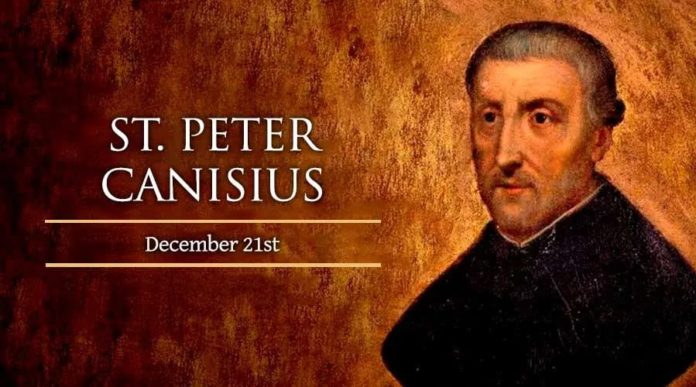Born in Holland in 1521, Peter had edited and written several volumes on Church history and theology. He had been a delegate to the Council of Trent and reformed the German universities from heresy. He was called to Vienna to reform their university. He won their hearts by ministering to the sick and dying during a plague. The people, the king, and the pope all wanted to make Peter bishop of Vienna, but Peter declined vigorously and administered the diocese for a year.
During the Reformation, many students were attracted to Protestant thoughts. Peter was not alone in wishing for a Catholic catechism that would present true Catholic beliefs undistorted by fanatics. Finally, King Ferdinand himself ordered Peter and his companions to write a catechism. The first issue of the Catechism appeared in 1555 and was an immediate success. Peter approached Christian doctrine in two parts: wisdom — including faith, hope, and charity — and justice — avoiding evil and doing good, linked by a section on sacraments.
As intent as Peter was on keeping people true to the Catholic faith, he followed the Jesuit policy that harsh words should not be used, that those listening would see an example of charity in the way Catholics acted and preached.
Peter died on December 21, 1597. He is known as the Second Apostle of Germany and was named a Doctor of the Church.



